
 Share
Share

 Print
Print
Serialized P/Ns - Financial Behavior, via P/N Category
From a financial aspect, the P/N Transaction radio buttons play a critical role when telling the system how to treat a part at receiving.
The following is an example of the financial behavior of a serialized part.
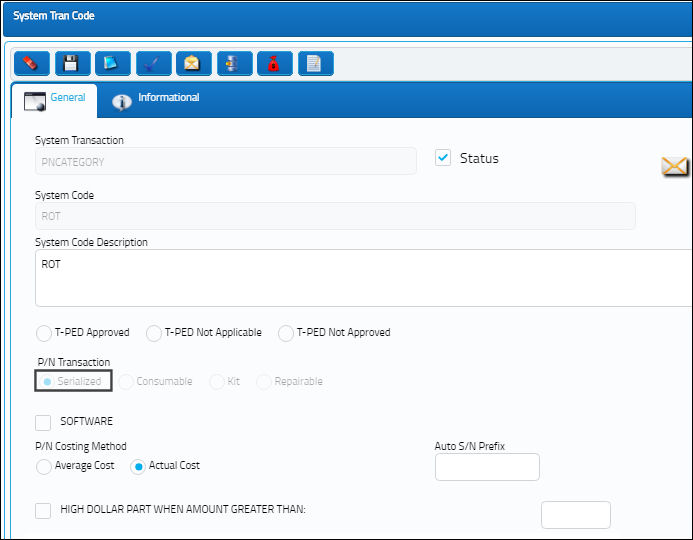
For serialized parts, the system creates a fix asset record at receiving for all parts brought into the system via Purchase Order Receiving.
Note: No Owner is specified in the Owner field.
For additional information, refer to Purchase Order Receiving, via the Receiving Training Manuals.
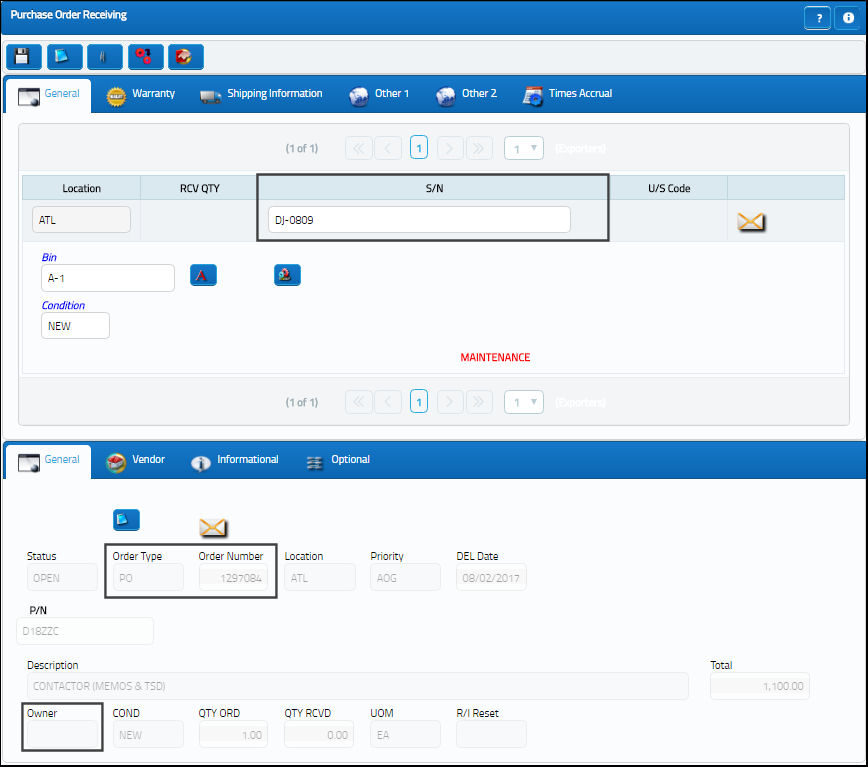
The system also creates a fix asset record at receiving for all parts brought into the system via P/N Initial Load.
Note: No Owner is specified in the Owner field.
For additional information, refer to P/N Initial Load, via the Inventory Training Manual.
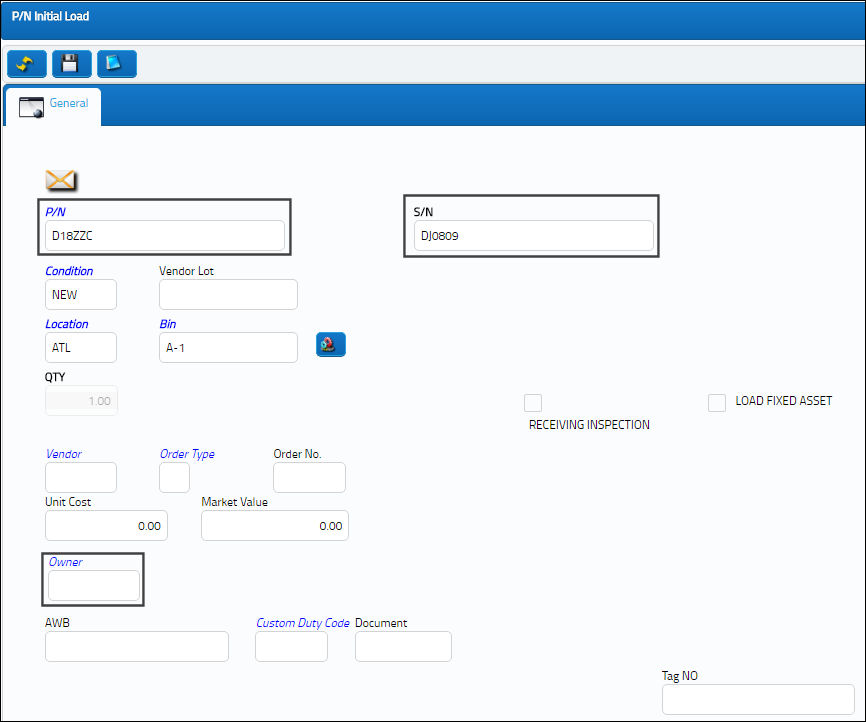
For additional information regarding the P/N Initial Load feature, please refer to the Training Manual, Inventory section. After receiving or initial load (pending R/I Checkbox) the following fixed asset record is produced.
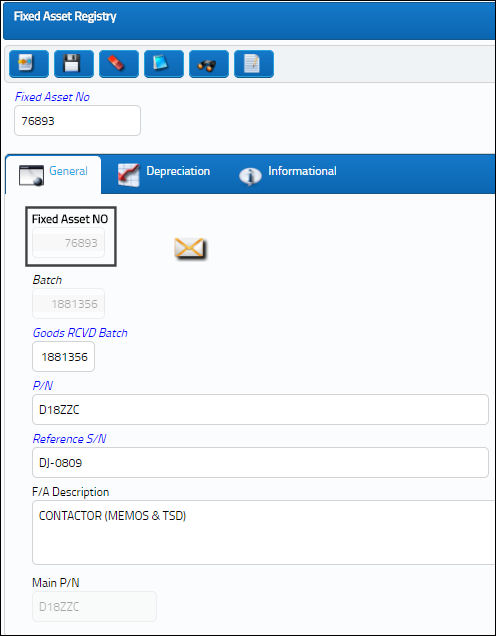
The system auto generates the Fixed Asset Registry Number (indicated above) with use of the Switch ![]() F/A which is set at implementation.
F/A which is set at implementation.
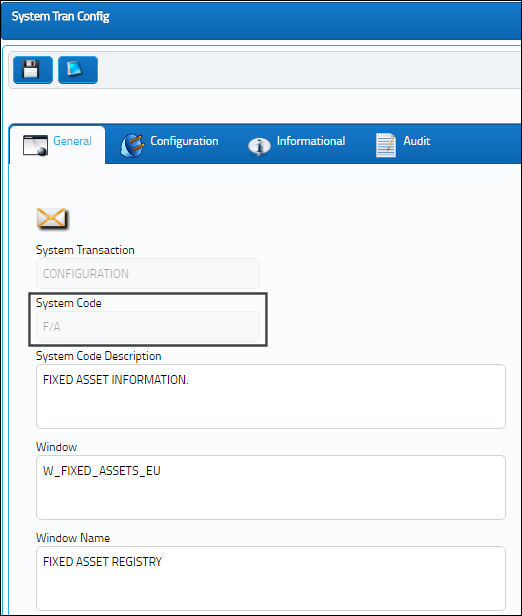
For additional information regarding the above switch please refer to the G/L Interface section of the System Transaction Configuration Manual.
Note: Serial Numbers are only used as reference in the F/A Registry via the G/L Interface/Update and Fixed Assets will be removed by scrapping and/or part sale using the FIFO or LIFO costing methods in accordance with Generally Accepted Accounting Principals (GAAP) in conjunction with the Department of Transportation (DOT) Accounting Standards. In addition, serialized sub components (NLA) will not generate fixed assets as they are considered part of the Highest Assemblies cost at receiving.
Note: Consumable parts are financially impacted the same way serialized parts are without the entry of a serial number or generation of a fixed asset record.

 Share
Share

 Print
Print